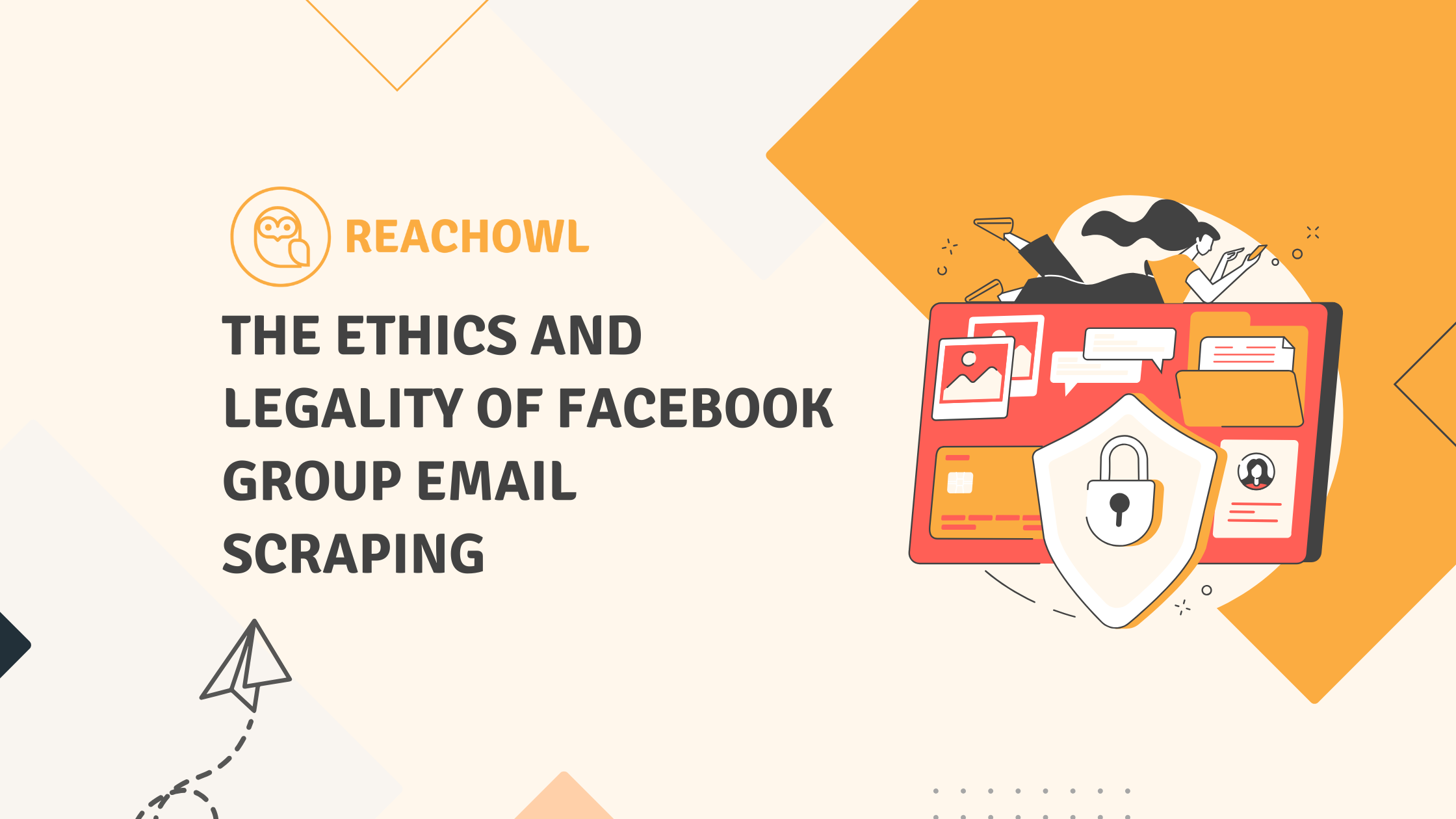People are using a method called Facebook group email scraping to gather email addresses from people in Facebook groups. This method involves taking email addresses from group members’ profiles without asking them first. People worry about this because it might secure their privacy, make their data less secure, and raise questions about what’s right and wrong online.
This blog post will guide into the ethics and legality of this practice, providing a comprehensive analysis of the key issues involved.
Table of Contents
ToggleImportance of Ethical and Legal Considerations
When looking at this issue, ethics and laws are really important. They remind us to behave well online and respect others. Taking someone’s email without their consent brings up questions about privacy, permission, and online rules.
We also need to think about the laws and rules, like data protection laws and terms of service, that apply to scraping emails from Facebook groups. This helps everyone, from regular people to big organizations and people who make the rules, figure out how to balance getting data with respecting people’s rights online.
Understanding Email Scraping
People are now using email scraping in Facebook groups. These groups are like online clubs, where people talk about different things and share stuff. Sometimes, group members put their email addresses in posts to connect with others.
Some people and groups use email scraping tools to get lots of these email addresses. They do this because they think the emails are useful for marketing or reaching out to people.
The Ethics of Facebook Group Email Scraping
The ethics of email scraping from Facebook groups are a subject of debate. Here are some key ethical considerations:
1. Consent:
One of the issues of consent with email scraping is whether it’s right or not. When members of Facebook groups share their email addresses, they usually think it’s just for that group. They don’t expect other people to take their emails without asking. Doing that might break the trust people have in the group, if they didn’t agree to it.
2. Privacy:
Email addresses are private information. Taking them from Facebook groups can make people worry about their privacy. People might not want their emails used for products or services they didn’t agree to in the group. Everyone has different privacy rules, making it challenging to determine what is ethically acceptable.
3. Trust:
Email scraping can ruin trust within online communities. Members may become wary of sharing information, fearing that their data will be misused. This can harm the collaborative and open nature of Facebook groups, making them less effective for their intended purposes.
3. Purpose:
The purpose behind email scraping matters ethically. If email addresses are gathered for legitimate, non-intrusive reasons, such as sending relevant information to group members, the ethical concerns may be less pronounced. However, when the intention is to attack individuals with unrequested messages or spam, ethical problems arise.
The Legality of Facebook Group Email Scraping
The legality of email scraping from Facebook groups is a complex issue, as it depends on various factors, including rule, terms of service, and the intended use of the scraped data. Here are some legal considerations:
1. Facebook’s Terms of Service:
Facebook’s Terms of Service say you can’t scrape their products or services, including emails. If you break these rules, your account might get stopped or deleted. Facebook could also take you to court if you’re scraping on your Facebook account.
2. Copyright and Intellectual Property:
Email scraping may also raise copyright and intellectual property concerns. Facebook group content, including email addresses, is protected by copyright law. If you take it without permission, you could get in legal trouble.
3. Data Protection Laws:
In certain places, there are rules called data protection laws. These rules, like the GDPR in Europe, control how personal information, like email addresses, is gathered and used. If the email addresses belong to people living in the EU, you have to follow GDPR rules. This means you need their clear permission to use their data and keep it safe.
3. Anti-Spam Regulations:
If you collect emails to send unwanted spam, you’re probably breaking rules like the CAN-SPAM Act in the US. Breaking these rules can get you in big trouble, with fines and legal consequences.
Ethical and Legal Alternatives
Rather than resorting to questionable email scraping practices, there are ethical and legal alternatives for gathering email addresses for marketing or outreach purposes:
1. Opt-In Subscriptions:
Encourage individuals to willingly subscribe to your email list or newsletter. This can be done through your website, social media channels, or other legitimate means. Make it clear why they should subscribe and what kind of content they can expect to receive.
2. Content Marketing:
Create valuable and engaging content that encourages individuals to willingly provide their email addresses. This could include ebooks, webinars, or exclusive access to resources.
3. Partnership Agreements:
Collaborate with other organizations or businesses to share email lists or run joint marketing campaigns. Ensure that such partnerships are based on mutual consent and respect for privacy.
4. Compliant Data Brokers:
If you need email addresses for marketing, use trusted data brokers who follow the rules about protecting data. Ensure that they have obtained consent from individuals to share their contact information.
Conclusion
Email scraping from Facebook groups presents a complex ethical and legal view. It might seem like a good idea for marketing or connecting to people, but it can harm privacy, trust, and online groups. You should follow the rules of the platform and the law when collecting data and sending emails.
In the digital marketing, ethical behavior and legal compliance are not only desirable but also necessary for building trust and maintaining the integrity of online interactions. As technology continues to advance, we have to be careful and do things in the right way to keep trust and be responsible with data.

